Harvesting Your Biometrics: Part Two
How will they sell digital ID to you? How are your fingerprints and facial template scans forged into a biometric identity? How does generative AI serve multiple technocratic agendas?
In part one, we looked at the overreach of CCTV surveillance using live facial recognition (LFR) technology in UK supermarkets and for policing. We highlighted the hijacking of biometrics as a prerequisite for cash handouts - by the state demanding the fingerprints of (Nigerian) citizens. Ergo, inserting a middle man third party between the cash recipient and the issuing entity - merging the physical, fungible, anonymous traits of cash, with the trackable, digitally recorded and identity-linked characteristics of biometric databases.
Harvesting Your Biometrics: Part One
Let us revisit the biometrics and surveillance juggernaut in headlines, to see if we can spot the propaganda angles- the bait and the hook. We have explored different aspects of these agendas. I invite readers old and new to visit or recap on the acceleration of digital ID and surveillance, through the lens of reversed values and trojan horse methodolog…
In this part two follow up, we shall once again review some headlines to spot the methodologies utilised by the propagandists to sell technocratic dystopia to the masses. We must dig a little deeper into the driving forces behind these agendas at a national-governmental level, whilst understanding the influences of supranational (unelected) organisations, so that we can see the path to global governance coming into view - which must be rejected at all costs.
DEEPFAKES, AI, & PROOF OF PERSONHOOD
No doubt your jaw has dropped upon seeing increasingly realistic, generative artificial intelligence created videos. It is becoming more difficult to discern what is really real from these clips. The elderly will be more at risk from scammers mimicking the digital likeness of their loved ones. Two years ago there was a spate of these AI-scams sweeping across the US, limited to phone calls whereby an AI-generated voice imitated a family member saying they were in trouble, then asking the relative to send money…
In audio of the 911 call provided to CNN by the Scottsdale Police Department, a mom at the dance studio tries to explain to the dispatcher what’s happening.
“So, a mother just came in, she received a phone call from someone who has her daughter … like a kidnapper on the phone saying he wants a million dollars,” the other mom says. “He won’t let her talk to her daughter.”
In 2025, we are quickly moving into the full-on recreation of a digitally simulated person; looking, moving, and sounding just like a real human in their corporeal form.
Check out these AI generated scenes:
When the AI production is this good, we have to wonder, how do they do this? How do people create videos at this level of quality? Will this tech soon be available to the public with mere prompt-to-video input-to-output?
Without getting too sidetracked from the main topic of this article, let us pause for a moment to realise the other main implications of this next-gen AI video creation, aside from the scammer potential:
It will give plausible deniability to bad actors, politicians, and war criminals when actual real footage incriminates them - they will dismiss it as AI.
It will serve the same plausible deniability angle for the internet scrubbers who are busy memory-holing the Convid years - they will claim that past footage is all fake and AI generated.
It supports the agenda of advancing the current captcha phrases / click-box-images for websites, into full on selfie-taking, moving one’s head from side to side, and “proof of personhood” - the next evolution from “sign in to confirm you are not a bot, this helps to protect our community”.
We will need more innovative digital products that enable us to scan images and video files, to determine the likelihood percentage of it being real versus AI generated, based on the pixels and frame rate et cetera.
This is what your correspondent looked like upon realising how much trouble we are in with generative AI:
All of this brings us to our first propaganda watch story for June 2025:
Readers from part one will understand how the propagandists always use evocative language when trying to sell new forms of privacy invasion to the public - usually alternating between the state feigning the role of protectorate, or else demonising a criminal element, whilst convincing the reader that the state will fight on their behalf.
This cited article is another example of everyone (on Meta) being treated like a criminal, by reportedly using a facial recognition ‘service’ to block scam ads and accounts impersonating celebrities…Yet surely that would mean that everyone else will be rolled into the facial recognition service criminal interoperable database to be shared with law enforcement agencies. Clever, isn’t it? How to get people to consent, willingly, to giving away not just their personal data, but now their facial template biometrics too.
Here is the reassurance blurb:
South Korean regulators noted that Meta will be required to delete facial information immediately after one-time processing, while the company will also be required to submit supporting documents such as server logs. The facial data cannot be used for any other purpose aside from confirming that a person is a celebrity. Meta will also have to clearly state to its users that images or public profile photos may be processed for detection purposes.
Do you trust them?
When the phrase ‘legal identity’ is paired with ‘migration governance’ we inevitably are conditioned with one of the globalist magic words: ‘inclusive’. Failing that, the sacrosanct sphere of ‘public health’ is invoked - as I wrote about here, in relation to Thailand’s biometric ID management for public health ecosystem - especially for migrant workers.
Back to the story at hand in Africa, other magic words (my emphasis in bold) are woven into the narrative to an altruistic effect, which many people will fall for:
Kasempa emphasized that if African governments must put in place inclusive migrant management systems, legal identity is definitely the road to reaching that goal. He added that migration should not be seen as a bane but rather a blessing because many migrants in Africa are young people who are at the “forefront of innovation leveraging technology, advocacy, and entrepreneurship to create new pathways for social and economic inclusion.”
[…]
“Legal identity must be recognized as a governance tool for poverty reduction as well as a public good, key to accessing rights, services and protections that every person is entitled to, regardless of their migration status,” he asserted.
It’s hard to argue with such fuzzy language painting utopian ideals on the face of the messaging. I implore you to always remember to invert their language, to think things through to their logical conclusion:
‘Inclusive’ migrant management systems = creating a database of digital identities amongst those most vulnerable and therefore dependent on state welfare.
‘Governance tool for poverty reduction’ = poverty enforcement, if people resist having a digital ID issued, the state welfare / universal basic income spigot could be turned off.
‘Every person is entitled to’ = The leave nobody behind mantra of the UN Agenda 2030 SDGs - more on that later when we tie everything in this article together in an ugly bow.
Last week we looked at CCTV video analytics expanding into the UK. The China Model is much farther along in the surveilling and monitoring of everybody, everywhere, all the time. Note the language used here and the inferences made:
This would bring over 20,000 cameras into the network. These departments say their systems currently lack facial recognition capabilities, according to Hong Kong 01. Following implementation of Sharp Eyes the police will no longer need to go to the different departments in person to obtain CCTV footage but will be able to directly view the required video.
[…]
The Sharp Eyes surveillance project, however, was initiated from Beijing in the late 2010s with the aim of surveilling all public space in China. The plan, which was outlined in the 13th Five Year Plan released in 2016, seeks to computerize surveillance and has been a launchpad for Chinese companies that sell facial recognition technology. Some of these companies help authorities to racially profile Uighurs, a largely Muslim minority, according to an investigation by The New York Times.
It is unclear how Sharp Eyes works exactly in Hong Kong, which is a Special Administrative Region with different laws to Mainland China. However, Hong Kong has seen crackdowns on free speech and right to protest as Beijing seeks to rein in the territory.
We can deduce the consolidation of sweeping additional powers for the Chinese police force, with greater centralisation amongst interoperable databases collating CCTV video analytics, using facial recognition. This should worry everybody worldwide, as I have repeatedly warned…
China is the testbed, the blueprint, the pilot country, for all things most extreme for a technocratic society. The plan is to roll this out globally.
Once again, it is worth embedding the video below on China’s surveillance, digital gulag, doxing of its citizens, and freezing dissidents out of society so they cannot travel on trains or planes…
True reality of so-called ‘Smart cities’, the aim of the WEF and 4th industrial revolution, if we let it happen👇
No real surprises here. I invite readers to recap on the UK government’s 10 “recommendations” from the Crime and Justice Commission:
UK Police State Turns to Digital ID, Facial Recognition Tech, and 'Murder Prediction' Program
Let us kick off with a succinct summary of the UK government’s 10 “recommendations” from the Crime and Justice Commission, as captured by Kit Knightly from Off-Guardian:
Now that you’re all recapped and caught up, let’s once again turn to Off-Guardian’s Kit Knightly for insights into how ‘BritCard’ is being marketed to the British public:
The report was published just this week by Labour Together – formerly “The Common Good” – a thinktank founded in “Labour’s wilderness years” to help “make Labour electable again”, according to their about page.
Translation: They’re centrist globalist Blairite shills who helped undermine and destroy the only vaguely genuine movement in the last 50 years of British “democracy” and now publish reports to push a globalist agenda.
This will include the new legislation required that will make “BritCard” the only way to apply for a job or find a place to live [page 25]. Employers and landlords will be forced to use it.
Then, once that is in place, it will expand to include other services [page 14]:
Over time, the same system used to support the right-to-work and right-to-rent credentials could underpin many other features, allowing users to access and use a wide range of data and attributes generated by interacting with the public sector. For instance, the digital driving license and associated data, a proof of age feature, and healthcare records could be accessed and shared at the user’s discretion via BritCard.
What this report shows us is the marketing strategy for the coming year, and it’s fairly simple:
Rebrand digital ID to a friendly-sounding name.
Introduce it for a specific purpose on a hot-button issue.
Make it mandatory for that purpose.
Slowly add more optional services.
Gradually make them mandatory too.
Here is a link to the BritCard report from the Labour website.
Download PDF directly here:
Note the attempt to manufacture a perceived public need and approval for the digital ID in this passage from the report, whilst the authors laughably pretend that digital ID would “protect civil liberties” (pg18):
Identity has a fraught history in the UK since World War Two, the British Government has not provided a foundational identity to its citizens. In its effort to protect civil liberties, the state has tied itself in knots. It has introduced myriad requirements for people to prove their identity and other facts and attributes about themselves. But it has not provided effective tools to allow them to do that.
The main identity credentials offered by the state - birth certificate, passport, driving license - are currently only offered in physical form; and none of them is in itself an “identity” document. The UK is unusual internationally in not having a national digital identity.
While the concept of a state issued foundational identity was for a long time highly contentious, developments in technology (largely in the private sector), and the abrupt need during the COVID pandemic for better digital tools (for instance, the NHS App and COVID Pass feature; the COVID Track and Trace App; and the vaccine appointments […]
Public attitudes towards digital identity have been broadly favourable for years: in general British people value convenience and are relatively relaxed about adopting technology.
Of course, good ole’ Covid had to be referenced - the vax-pass was only ‘contentious’ at that time - you are now told. The language used in the report by the authors is aimed at manufacturing your consent and approval, simply by telling you “Public attitudes towards digital identity have been broadly favourable for years”.
The technocratic kleptocrats running the EU, wanting personal gain at the expense of the governed, as well as the neo-feudalistic serfdom of their constituents via digital ID, are turning to the macro, geo-political stage for their justified means to the end of individual sovereignty:
“Trust services, electronic signatures, and digital identity wallets are presented not simply as technical solutions but as legal arrangements.”
Geopolitical uncertainties have inspired calls in the EU for more technological sovereignty and boosting the continent’s tech sector. In April, the European Commission unveiled the AI Continent Action Plan aimed at increasing tech competitiveness with China and the U.S.
SUPRANATIONAL ORGANISATIONS PUSHING BIOMETRICS AND DIGITAL ID
The World Economic Forum:
The Biometrics Institute:
“The mission of the Institute is to promote the responsible, ethical and effective use of Biometrics and related technologies that respect the Institute’s ethical guidance as an independent and impartial international forum for biometric users and other interested parties.”
Here is a cryptic snippet from the middle thumbnail above - Biometrics Institute updated Privacy Guidelines for the AI era:
The Privacy Guidelines are built around 18 core principles including proportionality, informed consent, protection of biometrics data and purpose and sharing of biometric data. The 2025 edition introduces several key enhancements:
AI: The guidelines now incorporate how to factor in the use of Artificial Intelligence
Brainwave biometrics: They provide guidance on the ethical and privacy implications of capturing brainwave patterns for biometric authentication and potential neurotechnology uses like interpreting cognitive states and emotional responses
Test use cases: Each Privacy Principle now begins with concrete use cases to provide practical examples
Actionable insights: A dedicated section with key questions has been added to specifically assist managers and key personnel in recognising priorities and discussing overall strategies with their staff and clients.
Capturing brainwave patterns?! Interpreting cognitive states and emotional responses?!
We were so focused on fingerprints and facial recognition biometrics data harvesting, that we forgot about the classic brainwave capture - another subset of your biometrics.
Scanning the archives….Here is a 2017 flashback to the caricature bond villain of WEF notoriety - Klaus Schwab, asking the audience to imagine that they will all soon have brain implants, that he will be able to scan their brainwave patterns, knowing their reactions and emotional responses:
X (formerly Twitter)
I previously wrote about X pushing digital ID under Musk’s leadership:
On 22nd May 2024, Ken Macon, also writing for ReclaimTheNet, covered another story involving Twitter and digital ID verification:
X, formerly Twitter, is now mandating the use of a government ID-based account verification system for users that earn revenue on the platform – either for advertising or for paid subscriptions.
To implement this system, X has partnered with Au10tix, an Israeli company known for its identity verification solutions. Users who opt to receive payouts on the platform will have to undergo a verification process with the company.
This initiative aims to curb impersonation, fraud, and improve user support, yet it also raises profound questions about privacy and free speech, as X markets itself as a free speech platform, and free speech and anonymity often go hand-in-hand. This is especially true in countries where their speech can get citizens jailed or worse.
[…]
X owner Elon Musk has commented in support of these bills, as recently as last week.
While this new X change is only for those users looking to claim a cut of the advertising revenue that X makes from their posts and is not yet enforced for all users, it is a large step towards the normalizing of online digital ID verification.
Digital ID required in order to monetise online content today - tomorrow it could be required in order to access all goods and services, both online and in the real world.
It’s all for your protection, is it not?
UNITED NATIONS AGENDA 2030
Everything outlined in this article comes back to Agenda 2030. In the same piece I cited above, which I published in May 2024, I mentioned agenda 2030 and the sustainable development goals:
From the perspective of the United Nations [mis]leadership driving agenda 2030, catchment of the children is a repeated theme - as I detailed recently when covering Education 2030 here and here - UN literature often refers to children as ‘change agents’ and ‘shaping young learners’. Having children digitally verify themselves online will normalise this action across all platforms, then as a pre-requisite to access the internet itself - through to adulthood. The digital ID campaign is a core tenet of Agenda 2030; specifically cited under SDG 16:9 -
By 2030, provide legal identity for all, including birth registration.
In case you are not convinced that this goal relates to digital ID, this particular SDG is cross-referenced by partnering organisations which are on board to usher in technocracy, such as ID2020:
Now I trust that the ‘magic words’ referenced earlier make more sense. It all leads back to the Agenda 2030 SDGs.
These agendas will continue to be pushed, rebranded, and softened up (in language terms) to make your enslavement more palatable and easier to swallow.
The real questions are:
Will you capitulate?
Do you have a line in the sand?
Do you value privacy over convenience?
What have you learned since 2020?
Nicholas Creed is a Bangkok based writer. If you would like to donate a virtual coffee or crypto or become a paid subscriber to support this work, it would help to keep the lights on.
Email: nicholas.creed@protonmail.com with information and newsworthy stories for open source intelligence gathering to support this Substack, thank you.
Bitcoin address:
bc1p0eujhumczzeh06t40fn9lz6n6z72c5zrcy0are25dhwk7kew8hwq2tmyqj
Monero address:
86nUmkrzChrCS4v5j6g3dtWy6RZAAazfCPsC8QLt7cEndNhMpouzabBXFvhTVFH3u3UsA1yTCkDvwRyGQNnK74Q2AoJs6







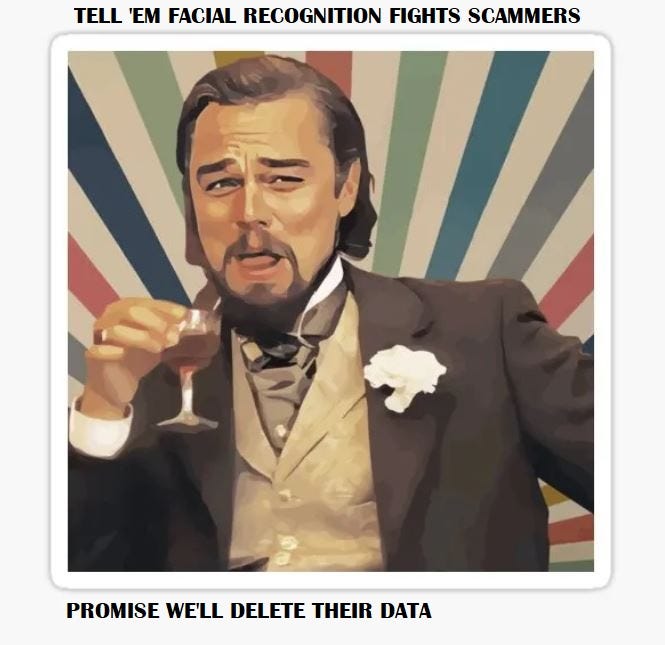
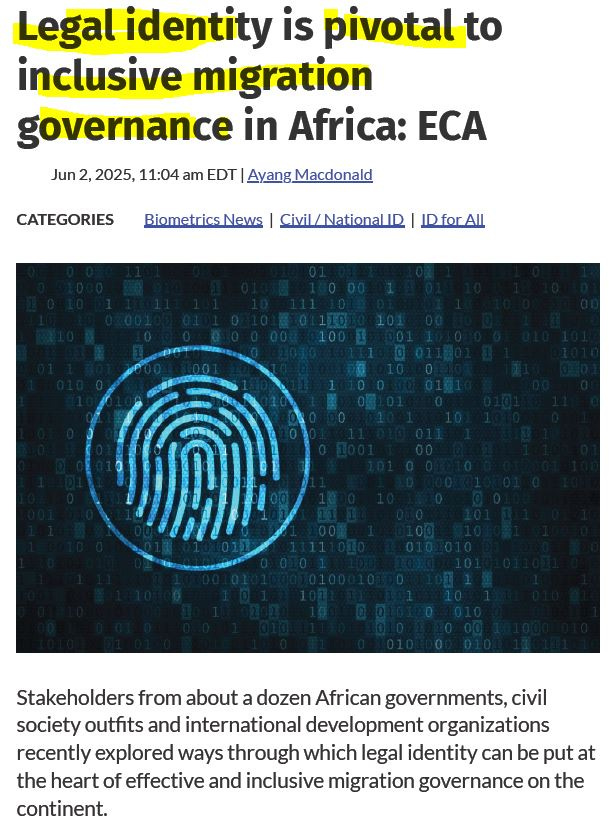





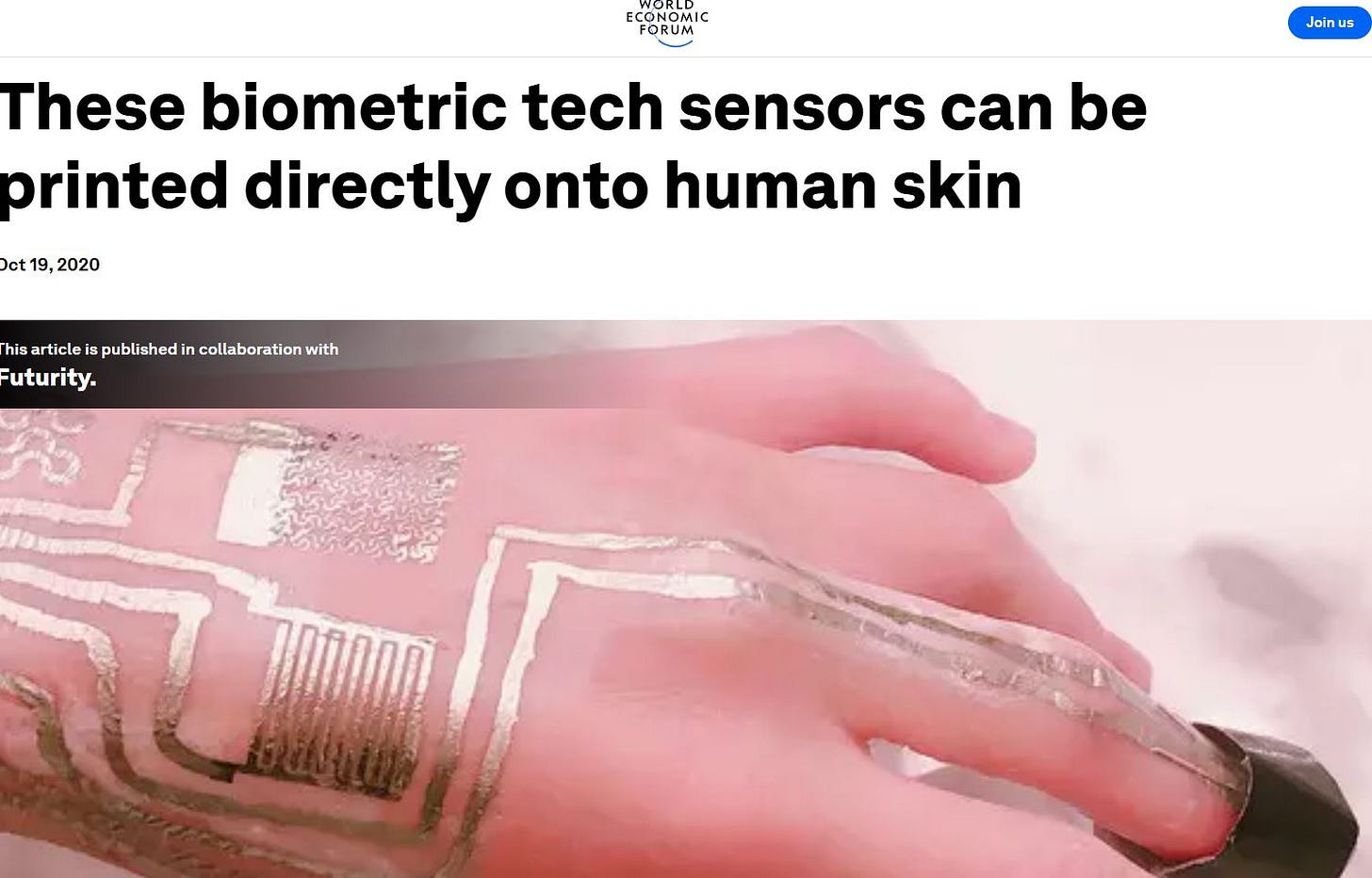
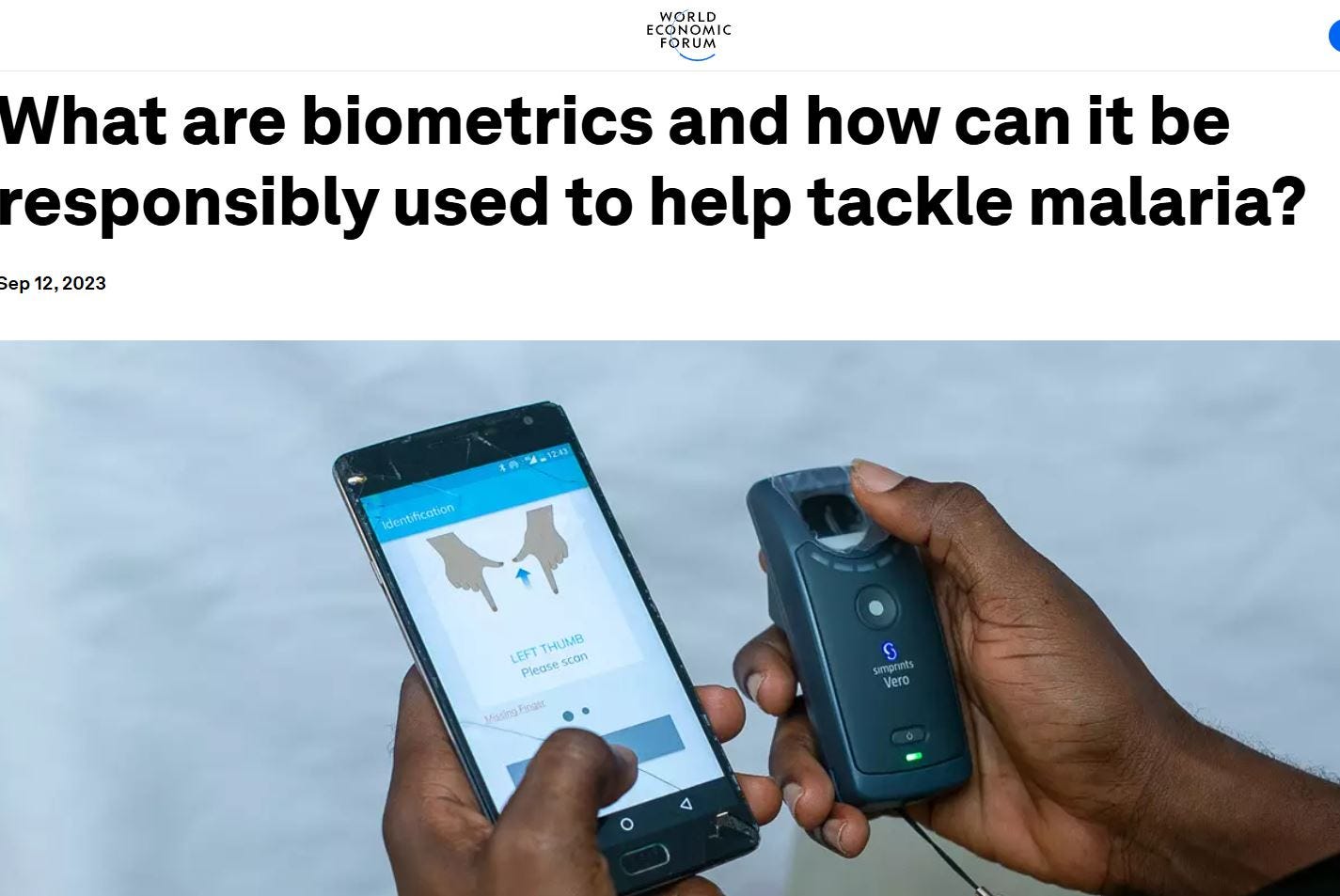




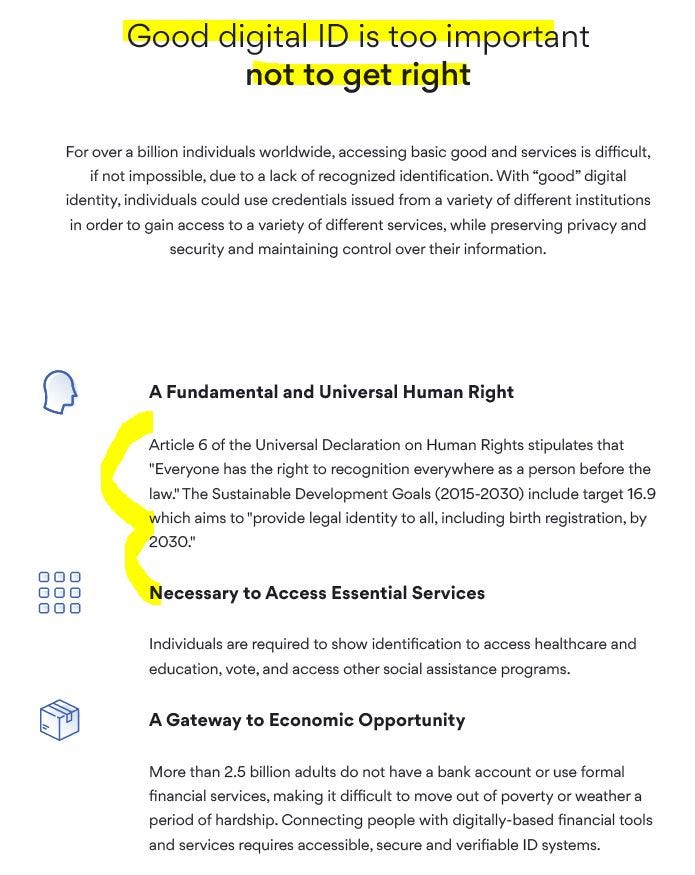
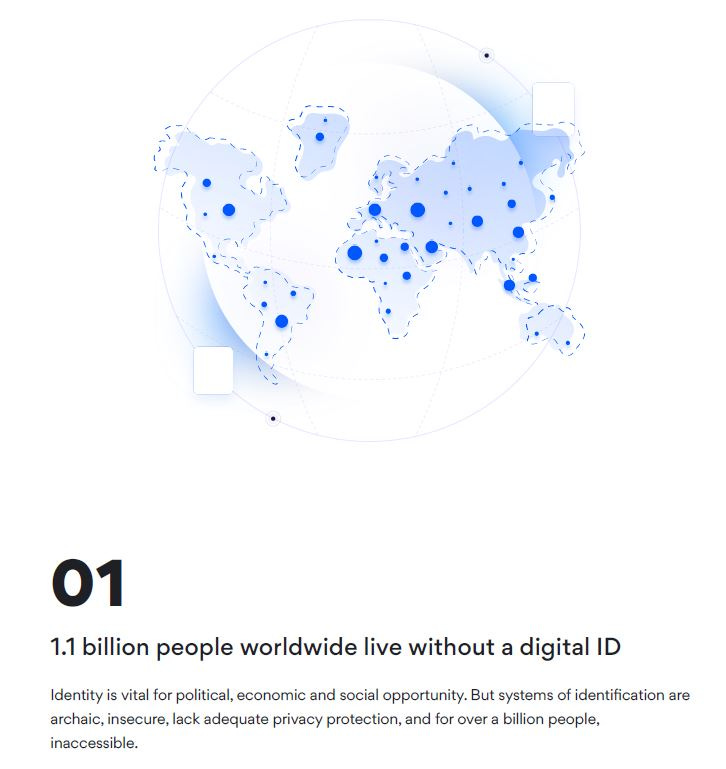
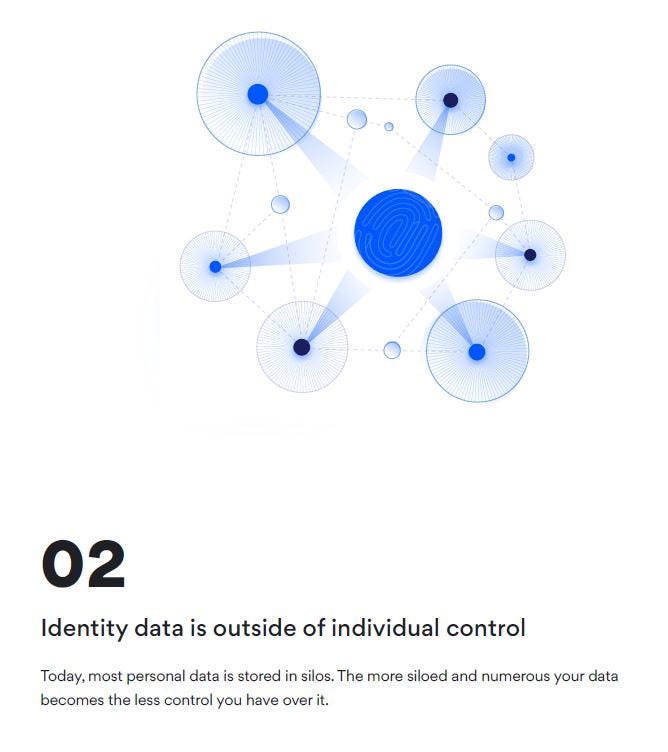
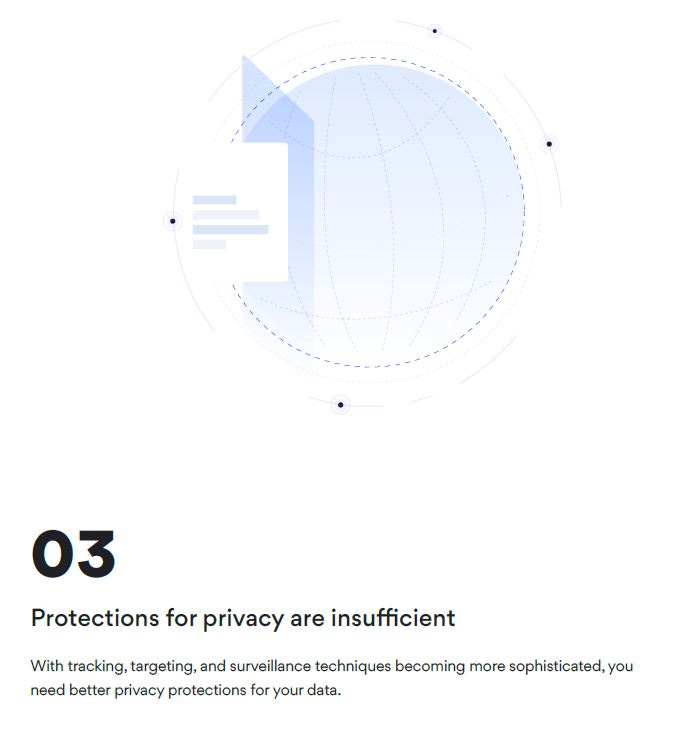

I have some hopes that when AI really does become indistinguishable from reality, then humans, as a cunning species, will come to realize that the only thing that is trustworthy is a face-to-face meeting. So the entire digital world will become irrelevant apart from entertainment.
If the cops show me a CCTV video of me behaving inappropriately in a London store, say, my smart lawyer will claim that the video is AI-faked, and challenge the cops to prove that it is real, which they cannot do. It is, in effect, planted evidence of a digital kind. And a jury of my peers will be on my side.
Alternatively, I could AI-fake a video showing that I was in Ulaan-Baatar railway station at the time of the offence, and challenge the cops to prove otherwise.
AI certainly can be a tool of the repressive State, but I think there are also opportunities to blunt that tool.
Really well presented. Lots of great links to resources, so this might take a while to go through all of it. A BritCard? Didn't know! Those Poor Bastards.
Wouldn't all this be for naught if we just used Deepfake detection software?
It wouldn't solve the need to turn humanity into a bunch of cattle, like they've done in China. But, at least I would stop getting those annoying calls from my long dead grandmother, asking for bail money.